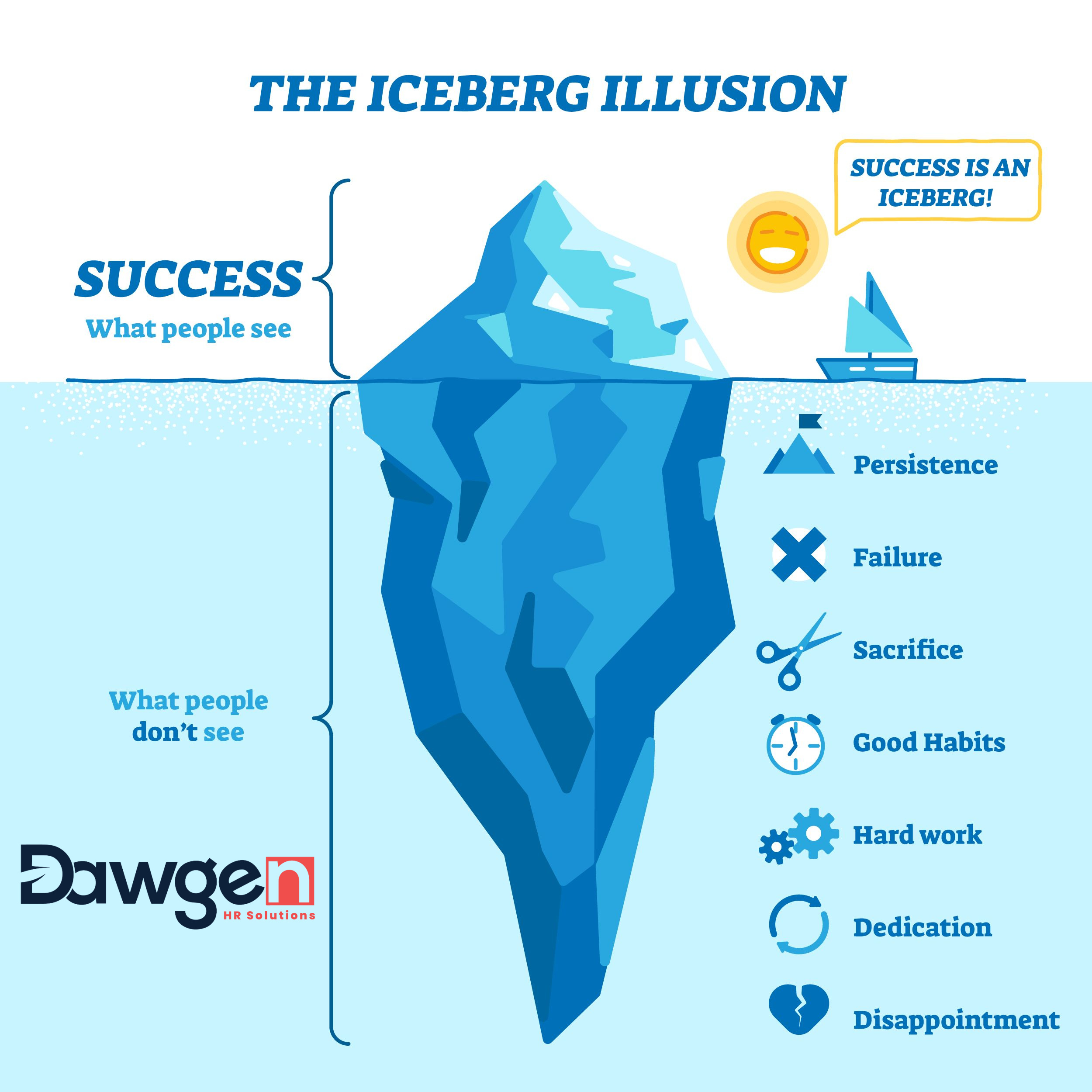
In the landscape of modern human resource management and organizational development, the Competencies Iceberg Model emerges as a comprehensive framework for understanding what drives individual performance. Developed by Harvard psychologist David McClelland, this model elucidates the multifaceted nature of an individual’s capabilities, extending beyond mere technical prowess to include a spectrum of underlying behavioral traits. It’s a paradigm that recognizes the totality of a person’s professional identity, emphasizing the concealed yet critical attributes that contribute to job success.
What is a Competency?
A competency can be defined as a cluster of related abilities, commitments, knowledge, and skills that enable a person (or an organization) to act effectively in a job or situation. Competencies ensure that a job is done efficiently and with expertise.
History of Competency
The roots of the competency concept can be traced back to the 1970s, with David McClelland’s seminal work in challenging traditional aptitude and intelligence testing, and advocating for competency-based assessments. This shift marked the inception of identifying performance drivers beyond academic brilliance.
Components of Competencies
Competencies encompass a broad range of elements including skills, knowledge, behaviors, and personal attributes that, when effectively harnessed, contribute to outstanding performance.
Types of Basic Competencies
Basic competencies are the fundamental skills required for effective participation in the workforce, including literacy, numeracy, and communication skills.
Types of Professional Competencies
Professional competencies refer to the advanced skills and knowledge that are specific to a profession, requiring formal education and experience, such as legal expertise for lawyers or surgical skills for doctors.
Categories of Competencies
Competencies are often categorized into clusters such as personal, interpersonal, organizational, and technical/professional to streamline their development and assessment.
What is a Threshold Competency?
Threshold competencies are the minimum requirements necessary to perform a job. They are the basic skills without which a person cannot function in a role.
What are Core Competencies?
Core competencies are a combination of pooled knowledge and technical capacities that allow a business to be competitive in the marketplace.
What are Workplace Competencies?
Workplace competencies are the skills and behaviors that enable people to perform job roles effectively within a workplace context, such as teamwork and problem-solving.
Core vs. Workplace Competencies
While core competencies relate to the strategic strengths of an entire organization, workplace competencies are concerned with the attributes of individuals within their job roles.
Who Identifies Competencies?
Competencies are typically identified by organizational leaders, HR professionals, and sometimes through collaborative efforts with employees to align individual roles with the organization’s strategic objectives.
Myths about Competency
A common myth is that competencies are innately fixed and cannot be developed. On the contrary, most competencies can be enhanced through training and experience.
Types of Competency Characteristics
Competency characteristics are often divided into knowledge, skills, and abilities – each representing different aspects of what an individual can bring to their role.
Competency Iceberg Model
The Iceberg Model, by McClelland, represents competencies as an iceberg where skills and knowledge are visible above the water line, and less tangible elements such as social role, self-image, traits, and motives lie beneath.
Competency Studies of L.M. Spencer and S.M. Spencer
L.M. Spencer and S.M. Spencer furthered competency research by elaborating on the proficiency levels within competencies and their predictive power on job performance.
Components of the Iceberg Model
The components of the Iceberg Model include:
- Visible: Skill and Knowledge.
- Hidden: Social Role, Self-Image, Traits, and Motives.
Importance of Iceberg Model
The Iceberg Model is critical because it acknowledges that the most potent and differentiating competencies are often not immediately observable.
Benefits of Competencies Iceberg Model
The model aids organizations in hiring and development processes by providing a deeper understanding of an individual’s potential beyond the surface-level qualifications.
What is Competency Mapping?
Competency mapping is the process of identifying key competencies for an organization and the jobs within it and delineating the competencies required for each role.
Steps to Develop Competency Model
Developing a competency model involves:
- Identifying organizational goals.
- Pinpointing necessary job performances.
- Defining behavioral indicators of key competencies.
- Validating and implementing the model.
Competency Dictionary
A competency dictionary is a tool that lists all the competencies within an organization along with descriptions and behaviors indicative of each competency level.
Competency-Based Behavioral Interviewing (CBBI)
CBBI is a technique that identifies the competencies that are key to a role and structures interviews to elicit evidence of these competencies from candidates.
CBBI Structuring (Questions/Probing)
In CBBI, questions are designed to probe past behavior as an indicator of future performance, asking candidates to provide specific examples that demonstrate their competencies.
In conclusion, as Dr. Dawkins Brown, the Executive Chairman of Dawgen Global, insightfully puts it, “In an era of talent transformation, understanding the depths of the Competencies Iceberg Model isn’t just an academic exercise; it’s a strategic imperative for organizational vitality.” It’s this profound understanding and strategic application of the Competencies Iceberg Model that empowers organizations to not only navigate but also thrive in the complex waters of the global talent pool.
Next Step!
“Embrace BIG FIRM capabilities without the big firm price at Dawgen Global, your committed partner in carving a pathway to continual progress in the vibrant Caribbean region. Our integrated, multidisciplinary approach is finely tuned to address the unique intricacies and lucrative prospects that the region has to offer. Offering a rich array of services, including audit, accounting, tax, IT, HR, risk management, and more, we facilitate smarter and more effective decisions that set the stage for unprecedented triumphs. Let’s collaborate and craft a future where every decision is a steppingstone to greater success. Reach out to explore a partnership that promises not just growth but a future beaming with opportunities and achievements.




Join hands with DawgenGlobal. Together, let’s venture into a future brimming with opportunities and achievements.

